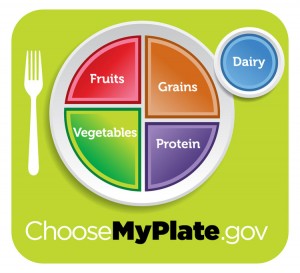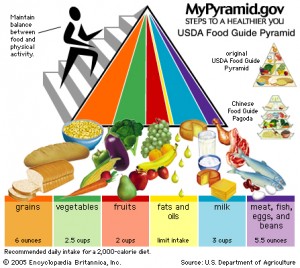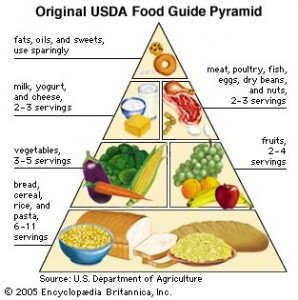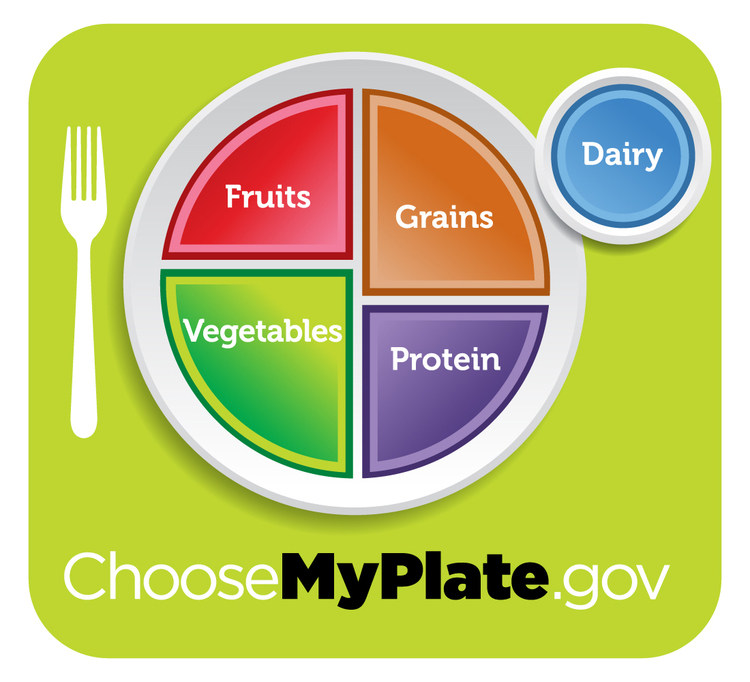Every five years the USDA updates its “US Dietary Guidelines” and the latest is out. The New York Times has published a piece that looks at exactly how baffling the concept of a “healthy diet” is and how often that changes.
Evolving Dietary Guidelines



We need to be careful about believing the conventional wisdom surrounding the “preferred diet.” It’s tragic, I think, that the conversation is so distorted by commercial interests and money; so much that objective ideas about food don’t get through.
I hesitate to even call the less-biased information “scientific” because the history of food in the US shows how much food “experts” have been persuaded by industry. A view I prefer to take is simply that we are more different in our dietary requirements, one from another, than we’d like to admit, and that the experts, controlled by the food industry, actively stereotype us for their own profit advantages.
From my own travels – and the admitted European influences of my grandmothers – I know diets among people are intrinsically adjusted to suit individual needs over time and that the actual presentation of food is a cultural phenomena if left to evolve naturally, a kind of natural selection.
Throughout history, people depended on what food sources they evolved with in their environment. What made them healthy gave them a competitive advantage. Their creativity allowed them to embellish the food’s taste and attractiveness; their special genius also allowed them to discover how to preserve the food they grew to rely on.
Isn’t this common sense? In my family, if I do all the cooking centered on my own needs, my partner’s needs may not be satisfied. My position is that our modern industry-dominated food system is making us sick because it is standardizing everything – from our diets to us as individuals – to make money.
A person’s natural diet begins with their genes and the culture from which they descend. And that’s important. But from there, diet and health has to do most with one’s personal determination to stay fit; eating can be like any other exercise. We do it to stay well. That doesn’t mean that eating shouldn’t also be enjoyable. It’s just saying that with our own growth and maturity, we put our health first.
We all have individual diet requirements and the element of diet is really a cultural thing where selective breeding led to common requirements among early societies. I lean toward the work of social anthropologists like Sidney Wilfred Mintz or Gary Nabhan for my own insights about diet and I seek the best individual medical advice I can get from sensitive health professionals, certainly not from the general media.
We could indeed subscribe to our own personal common sense diet using our health professionals as our helpers. The problem is, we can become addicted to bad food that we learn tastes good. Knowing this, unscrupulous food corporations go out of their way to distort our perceptions and encourage us to consume their unhealthy food products.
Since they are in it for the money, it’s no real interest to them if it kills us slowly, and they are very good about dodging the real medical cost of the diet-related illnesses they create.
As an ecologist, I also connect good food choices with diverse and stable natural ecosystems. For example, when you think further than your plate, what could be more unhealthy than synthetic mono-typical food products grown on factory farms with chemicals?
Do you really need a “food pyramid” or “food plate” to tell you what to eat? Know your family’s origins, shop farmers markets and the perimeters of supermarkets, eat fresh whole food – nothing your great-grandmother wouldn’t recognize – and not too much, cook it yourself, and enjoy your meals with family and friends.
It’s no mystery: real food contributes to real health.

